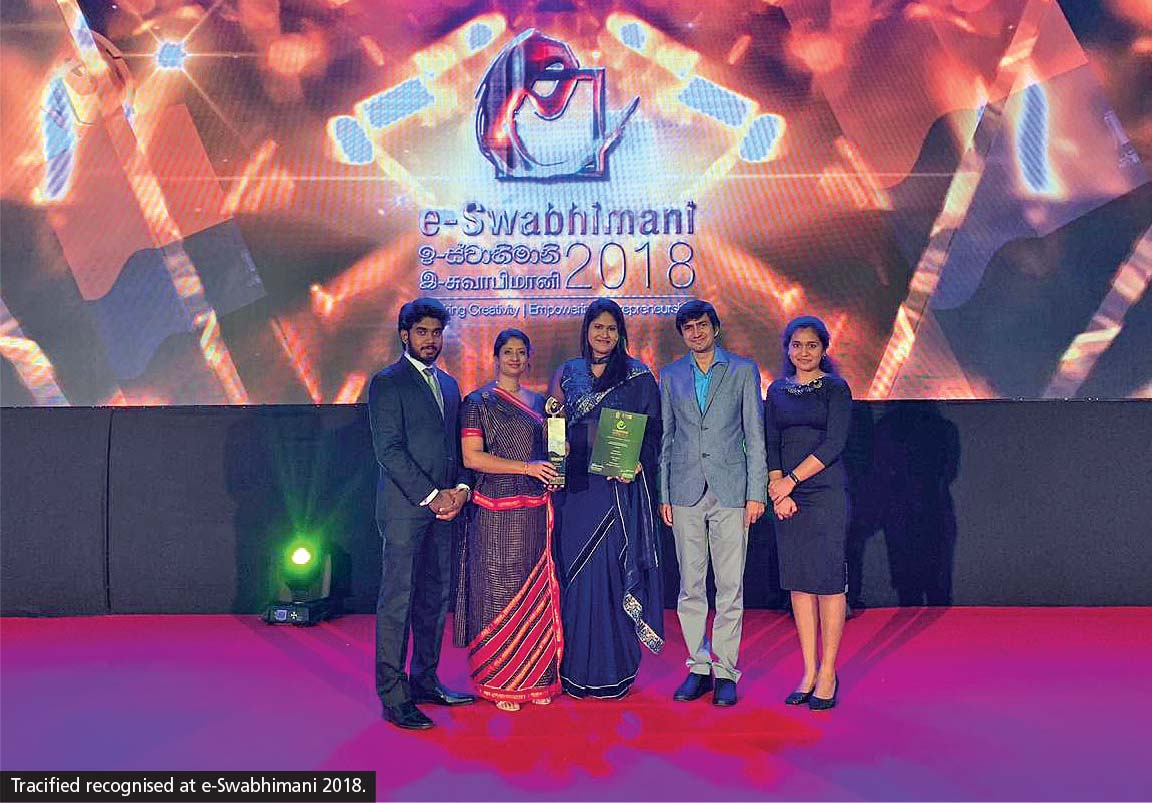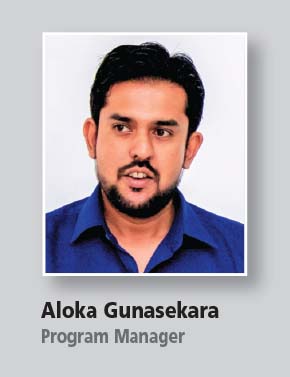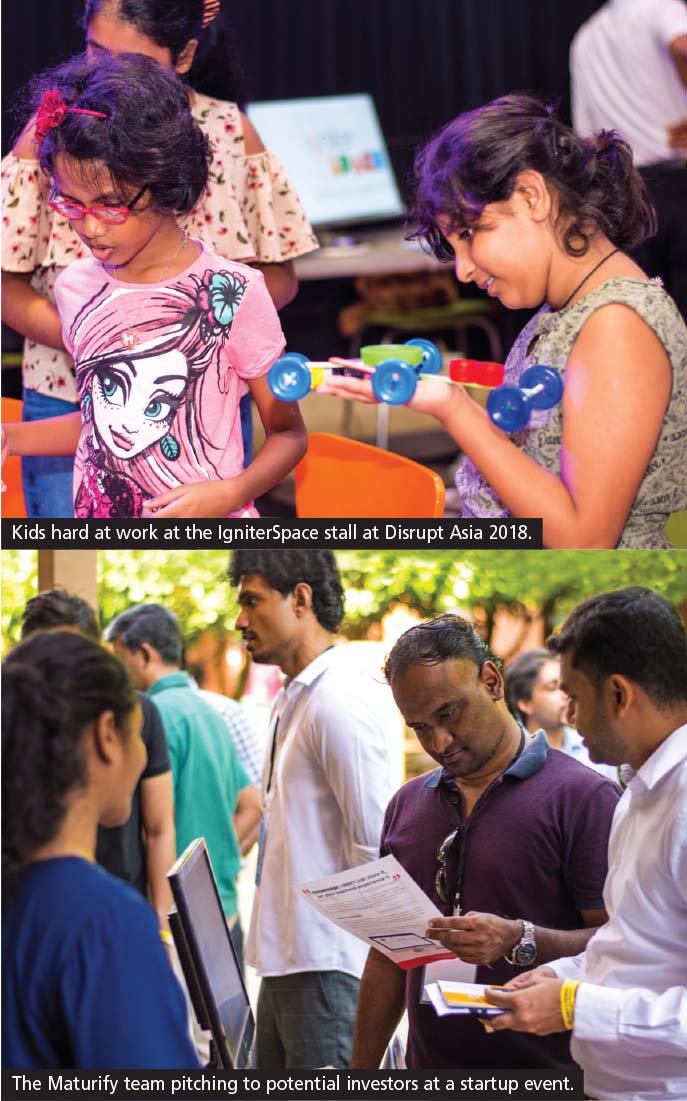STARTUPX FOUNDRY
Q: How has StartupX Foundry impacted the local startup ecosystem since its establishment?
A: StartupX Foundry is an independent incubator and accelerator that has been instrumental as a thought leader in the startup ecosystem. Our business model is different and the organisation is a nonprofit, enabling us to work with everyone in and outside Sri Lanka.
The company is independently recognised by the International Trade Centre – a multilateral agency with a joint mandate with the WTO and UN – as one of the most influential startup ecosystem entities in Sri Lanka.
Q: Would you say the business climate in Sri Lanka is conducive to entrepreneurship?
A: Yes. Recently, there has been a massive policy level impetus in encouraging entrepreneurship. Many barriers to entry have reduced, there is dialogue around entrepreneurship and the historical dogma associated with the term ‘businessman’ is diminishing.
Many young people are launching businesses especially focussing on digital disruption while tourism and other improving sectors have witnessed flourishing new businesses. However, we need many more Sri Lankan businesses to grow out of Sri Lanka. This is where real economic growth can materialise.
It’s our belief that we have one of the best examples in this regard – IgniterSpace, a makerspace spearheaded by 24-year-old Jehan Wijesinghe who became the CEO when he was only 19. Currently, it has makerspaces in six cities and several schools across the country. IgniterSpace’s business has expanded to Bangladesh, and it works with multiple partners to take its creative kits to children in Sri Lanka and elsewhere.
Q: How can we ensure a more optimistic business future for tech firms?
A: Currently, there is a dearth of tech professionals and this situation is only going to worsen in the future. Our education system should be improved to expedite this need.
We also need a more cohesive investment landscape for tech firms. There isn’t enough investment in tech and hardly any tech companies are listed on the Colombo Stock Exchange (CSE).
In addition, more innovative ideas should spawn from the country’s SME sector where domain know-how exists. Startup ecosystems should connect tech specialists to such domain driven startups to bring the right mix for unicorn businesses.
Q: What are the latest trends in the IT industry?
A: We’ve observed considerable growth around AI, IoT, digital transformation, data driven business decision systems, automation and convenience driven businesses. While similar businesses are mature in the West, there is much room for growth in South and Southeast Asia, because of the uniqueness of cultures and shorter cycles of technology transformation.
At StartupX Foundry, we have focussed on such areas to launch startups that have social impacts. One such example is Tracified, which tracks food from its origin to the table. Its services are currently used by a client who sends fresh salmon from Norway to China. Tracified’s solution ensures the food’s journey is tracked transparently, and eliminates doubts about freshness and supply chain continuity.
Another startup is Maturify, which tracks enterprise knowledge and maturity levels. Most organisations have ad hoc knowledge management practices and don’t learn about the loss of knowledge until employees leave.
This is especially true for modern, highly competitive industries where knowledge and know-how are quite intrinsic. Maturify keeps track of these elements, and helps organisations quantify and visualise them so that they can be managed transparently and problems can be addressed.
Q: What are the key challenges in this business?
A: While a host of entrepreneurial ventures take place, most are still focussed on the Sri Lankan market, and there’s only so much you can sell to a country with a population of 21 million and a middle income economy.
For startups, the focus ideally must be on earning in dollars and spending in rupees. Market access and digital reach is an important competency that should be acquired by local startups.
We also have a challenge of finding the right people with the right attitude and aptitude to assist in entrepreneurial ventures. The first few people to join a startup can make or break it. A growth mindset and the ability to take calculated risks are important factors in this case.
Q: So what’s on the horizon for StartupX Foundry?
A: Our main focus is on taking Sri Lankan startups to global markets. We have a strong relationship with key markets in the Scandinavian region, and frequently take startups to those markets for market access, investment and business development. We also work closely with several partners in Southand Southeast Asia as they’re ‘the’ emerging markets with a lot of potential in the next five to 10 years.
StartupX Foundry is also focussed on creating business ventures in multiple areas that have not seen much focus so far. The company is collaborating with the Sri Lanka Institute of Nanotechnology (SLINTEC) to monetise its IP by creating startups and royalty schemes around it. StartupX Foundry is looking forward to expanding this programme to other universities in the country.







